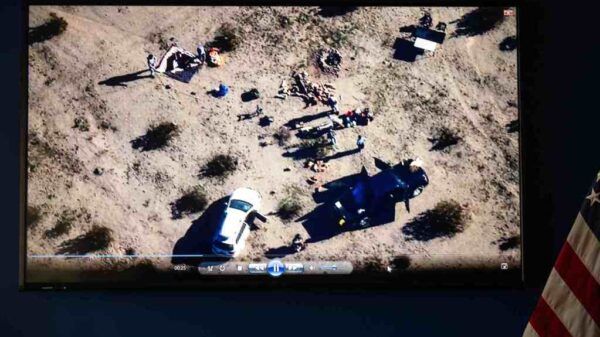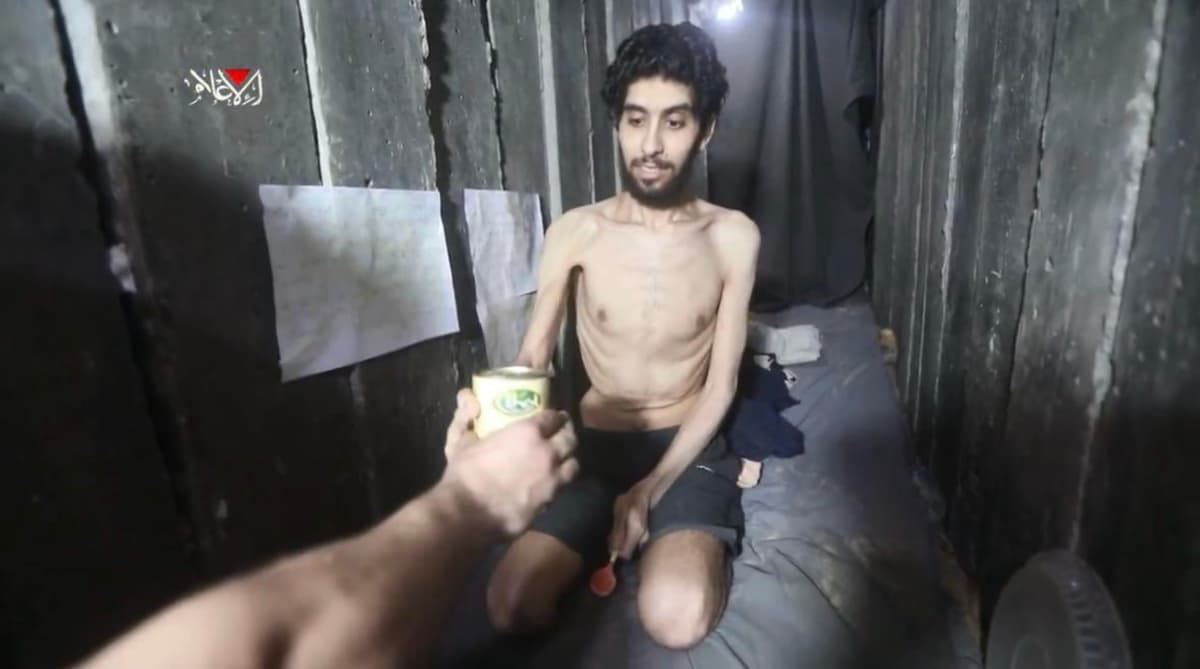Israel is at a critical juncture following 22 months of conflict in Gaza. Prime Minister Benjamin Netanyahu and his top security advisers are preparing the public for a decisive military operation against Hamas, a move that could jeopardize the lives of remaining hostages. A meeting convened on Tuesday included key figures such as strategic adviser Ron Dermer, Defense Minister Israel Katz, and Lieutenant General Eyal Zamir, chief of the Israel Defense Forces (IDF). The outcome of their discussions remains uncertain as the cabinet is set to deliberate on the next steps on Thursday.
The urgency of the situation has intensified due to the recent release of distressing videos by Hamas, showing two emaciated Israeli hostages who appear to be in grave condition. This development has prompted Israeli leaders to reconsider their strategy, with military analyst Jonathan Dahoah Halevi stating, “Hamas made a mistake… they are forcing the government to escalate in Gaza.” He emphasized that the videos serve as a stark reminder of the threat posed by Hamas.
The response from the U.S. government has been measured. State Department spokesperson Tammy Bruce condemned the videos as “an astoundingly evil reminder of who they are,” while reaffirming Washington’s focus on the liberation of hostages, including the remains of two American citizens. “We remain focused on freeing the hostages… and ensuring that Hamas never rules Gaza again,” Bruce added.
As the Israeli government weighs its options, it faces a stark reality. According to Halevi, the only remaining strategy may involve entering Gaza territories previously avoided out of concern for the hostages’ safety. He remarked, “To win the war, all that Hamas needs to do is survive,” warning that their continued existence could have long-lasting repercussions for Israel and the broader region.
Military Options and Political Pressures
Following the Tuesday meeting, General Zamir proposed new strategies to intensify military operations in Gaza. The prime minister’s office noted that the IDF is prepared to act on any cabinet decision. This statement appears aimed at quelling speculation about internal dissent within the military ranks regarding the next steps.
Reports indicate that General Zamir has reservations about launching attacks in areas where hostages are known to be held, as this could put their lives at further risk. The political climate surrounding the IDF chief, who was appointed earlier this year, has been charged, with unconfirmed rumors of potential resignation should the cabinet’s decisions conflict with his military judgment.
Former IDF navy commander Vice Admiral Eliezer Marom expressed skepticism that the cabinet would endorse actions that could lead to the deaths of hostages. “There are a lot of variations between complete Gaza occupation and doing nothing,” he stated. Meanwhile, cabinet ministers acknowledge that a military escalation could indeed place the lives of hostages in jeopardy. Agricultural Minister Miki Zohar emphasized the need to defeat Hamas, asserting, “Whoever thinks that in reaction to these videos we must surrender to Hamas is missing the larger strategic picture.”
Public Sentiment and Future Implications
Across Israel, public sentiment is divided. Many anti-government protesters are advocating for a negotiated settlement with Hamas that would end hostilities and secure the release of hostages. However, there are concerns that such a deal could allow Hamas to regroup and potentially launch future assaults, similar to the events of October 7, 2023.
As the Israeli leadership grapples with these critical choices, the situation remains fraught with uncertainty. “It’s the classic ‘hijacked plane’ dilemma,” Halevi noted, highlighting the difficult balance between aggressive military action and the risk of hostage casualties. “I don’t envy the decision makers,” he concluded, underscoring the weight of the decisions that lie ahead.
Israel’s leadership is faced with a deeply complex situation where every action could have far-reaching consequences, not just for the hostages, but for the nation’s future stability and security.







































































